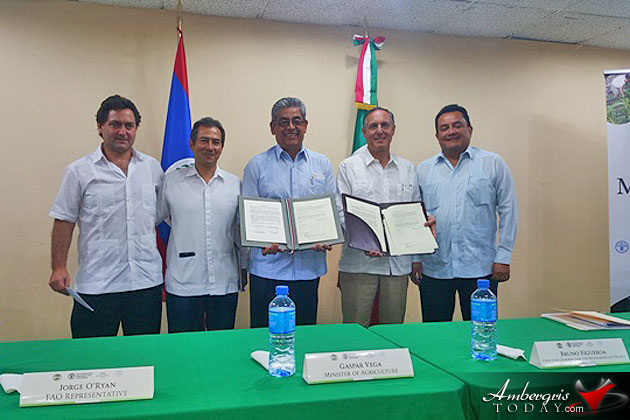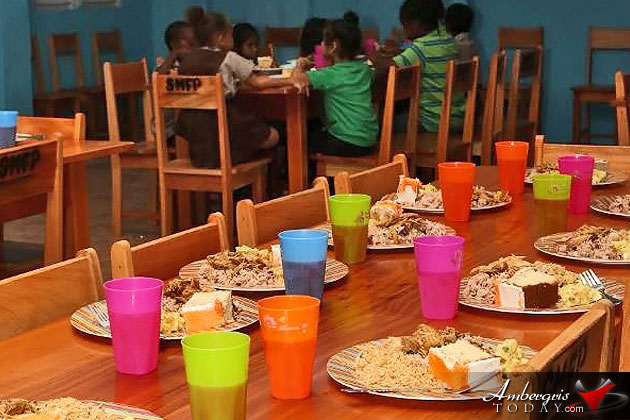– In Belize, Mesoamerica without Hunger drives the pilot project of sustainable schools in the Toledo district – In order to strengthen national and local institutional frameworks for food security and family farming, Belize officially joined the Mesoamerica without Hunger program. The Ministry of Agriculture, Fisheries, Forestry, Environment & Sustainable Development and the Mexican Embassy formally launched the program on April 5th, 2016, 3:00 p.m. at the George Price Center, Belmopan City.
Through this initiative, Belize’s Pilot Project aims to develop Sustainable School Feeding Programs (SFP) in four communities of the Toledo District. As from last year, seven Mesoamerican countries and one from the Caribbean embarked in the “Mesoamerica Without Hunger Initiative” and Belize is now becoming a part of this.

The SFP model developed goes beyond a conception where the role of the program is limited to just providing healthy and nutritious meals to poor and vulnerable children. The new model is now linked to school gardens and nutrition education, as it promotes lifelong healthy eating habits for school children and by extension, their families. It links SFPs to markets and producers, especially small farmers, and emphasizes SFPs as a market for domestic production of quality products, thereby focusing on the utilization of local products, reducing the food import bill and local job creation. Family Farming and its linkages with SFP can also contribute to enhancing livelihoods, environmental sustainability and local production and consumption of fresh healthy food.
Belize is determined to strengthen its governance mechanisms for designing, implementing and monitoring its programs and public policies for Food & Nutrition Security (FNS). In this regard, SFPs based on the experience of Latin America and the Caribbean is one of the cornerstone strategies which can be adopted to achieve social justice with instruments that contribute to different dimensions of development and the realization of rights.

Under the National FNS Policy, a Food & Nutrition Security Commission has been established to provide coordination among different sectors and for policy observation to take place. In the case of Belize´s SFP, it is important to recognize that the program currently operates in specific and limited national areas. On the other hand, it is also important to take into consideration that the nature of school feeding responds to a real need of ensuring children are fed at school, thereby tackling both hunger and its consequences, while also contributing to the educational and learning process.
The Food & Agriculture Organization of the United Nations (FAO) has developed a methodology to provide both technical and financial assistance to countries interested in improving their National SFPs.
Mesoamerica Without Hunger” is a program of cooperation between countries in the South-South region that contribute to the Sustainable Development Goals. With aid from the Mexican Government through the Mexican International Development Cooperation Agency (AMEXCID) and with technical support from the FAO, Mesoamerica Without Hunger also seeks to strengthen institutional frameworks for achieving Food and Nutrition Security and individualized attention to Family Farming.













